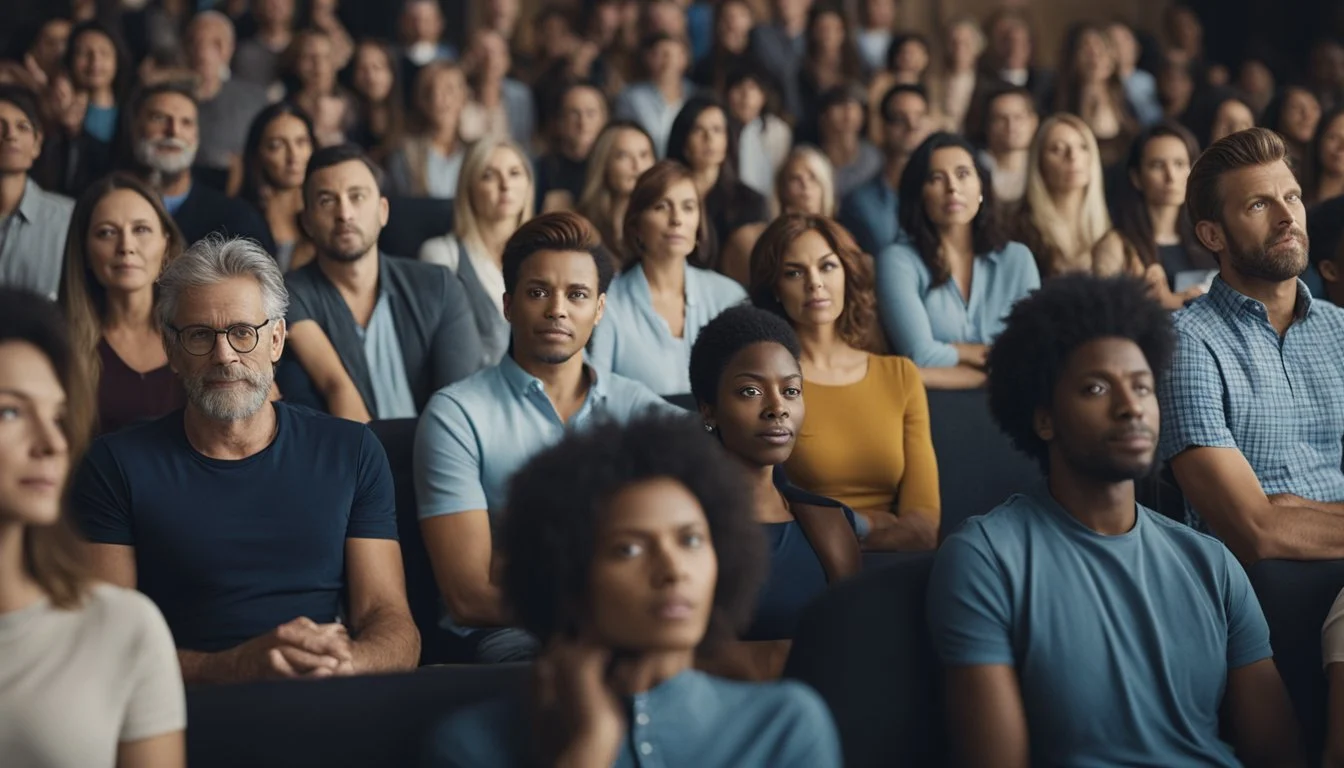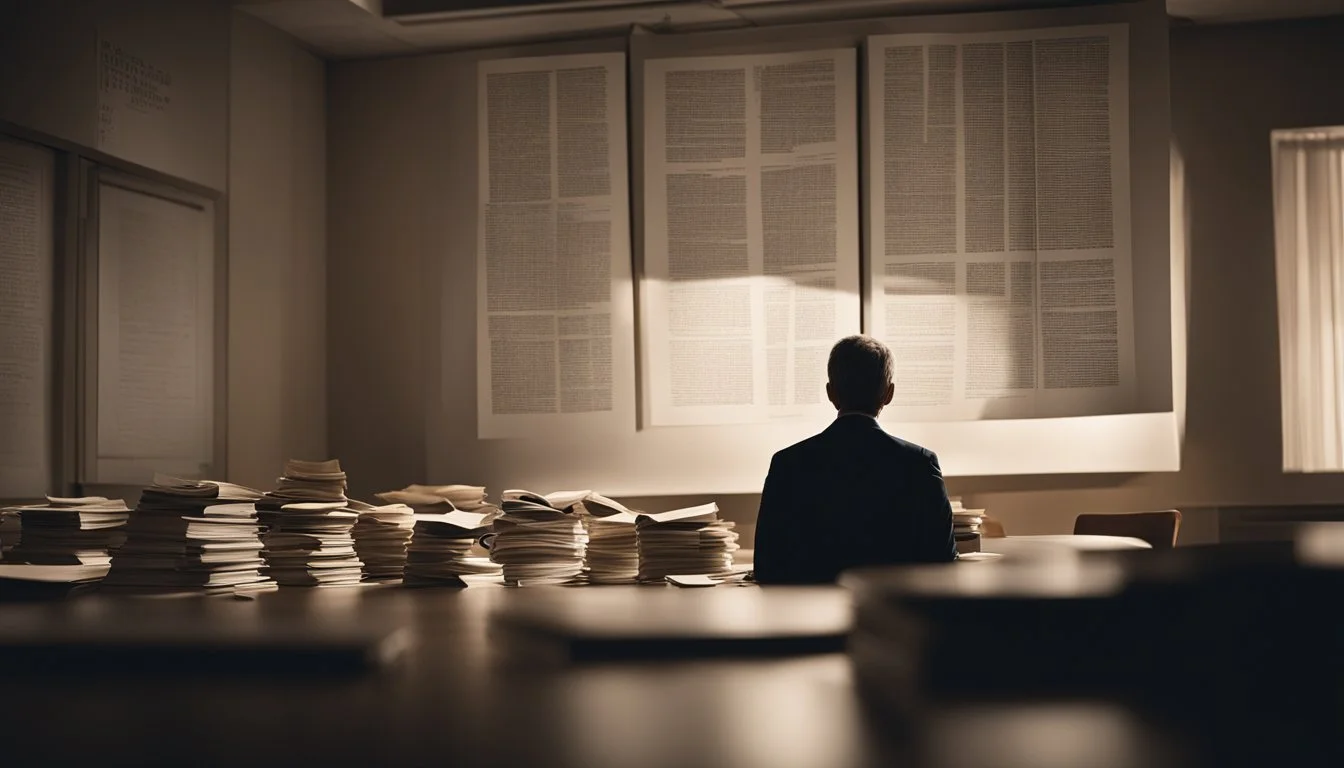4 Documentaries That Challenge the Notion of "Happily Ever After"
Exploring Real-Life Relationships
Documentaries offer a unique lens through which to examine the complexities of love and relationships. While fairy tales and romantic comedies often present an idealized version of "happily ever after," real-life love stories are far more nuanced and challenging.
These documentaries explore the realities of modern relationships, shedding light on the struggles, joys, and unexpected twists that come with pursuing love and partnership. By presenting authentic narratives from diverse perspectives, they challenge viewers to reconsider their expectations and assumptions about what it means to find lasting happiness in love.
1) Dear Zachary: A Letter to a Son About His Father (2008)
Dear Zachary tells the heartbreaking story of Andrew Bagby, a young doctor murdered by his ex-girlfriend Shirley Turner. Filmmaker Kurt Kuenne, Andrew's close friend, set out to create a video memorial for Andrew's unborn son Zachary.
The documentary takes a shocking turn when Turner, released on bail in Canada, gives birth to Zachary. Kuenne's project transforms into a race to capture memories of Andrew for his son before Turner can potentially harm him.
Through interviews with Andrew's family and friends, the film paints a vivid picture of a beloved man whose life was cut tragically short. It also exposes flaws in the Canadian justice system that allowed Turner to maintain custody of Zachary despite being charged with murder.
Dear Zachary challenges the notion of happily ever after by revealing how quickly life can change and how systems meant to protect the innocent can fail. The film's emotional impact stems from its raw honesty and the unimaginable tragedy at its core.
More information on Dear Zachary: A Letter to a Son About His Father
2) Capturing the Friedmans (2003)
Capturing the Friedmans delves into the complex and disturbing case of a seemingly normal middle-class family torn apart by allegations of child sexual abuse. Directed by Andrew Jarecki, this documentary examines the arrest of Arnold Friedman and his son Jesse on multiple charges of molesting children in their home.
The film presents a multifaceted view of the case, incorporating home videos, interviews with family members, and perspectives from law enforcement and alleged victims. It raises questions about the reliability of memory and the potential for false accusations in high-profile cases.
Jarecki's approach allows viewers to draw their own conclusions about the Friedmans' guilt or innocence. The documentary highlights the devastating impact of the accusations on the family dynamics and community relationships.
Capturing the Friedmans challenges the notion of a clear-cut resolution, leaving audiences to grapple with the ambiguities of truth and justice in a deeply troubling situation.
More information on Capturing the Friedmans
3) The Act of Killing (2012)
"The Act of Killing" challenges the concept of justice and moral resolution in its portrayal of Indonesian death squad leaders. The film invites these men to reenact their crimes against humanity from the 1960s.
Director Joshua Oppenheimer's approach reveals the perpetrators' lack of remorse and their continued influence in Indonesian society. This stark reality contradicts the notion of wrongdoers facing consequences for their actions.
The documentary showcases how these individuals have evaded punishment and instead live comfortable lives. It presents a disturbing picture of impunity, where the 'bad guys' seemingly get away with their crimes.
Through its unflinching examination of past atrocities and their aftermath, "The Act of Killing" forces viewers to confront uncomfortable truths about human nature and societal complicity.
More information on "The Act of Killing"
4) Tickled (2016)
Tickled is a documentary that starts innocently but quickly takes a dark turn. Directors David Farrier and Dylan Reeve begin by investigating the seemingly harmless world of competitive endurance tickling.
Their curiosity leads them down a rabbit hole of deception, harassment, and exploitation. The film reveals a complex web of power dynamics and manipulation behind the scenes of these tickling competitions.
As the investigation deepens, the directors uncover a shadowy figure orchestrating the events. They expose how participants are coerced and blackmailed into continuing their involvement.
Tickled challenges viewers' expectations, transforming from a lighthearted exploration into a serious examination of online harassment and abuse of power. It raises important questions about consent, privacy, and the dark side of internet subcultures.
The documentary serves as a cautionary tale about the unexpected consequences of seemingly innocent pursuits in the digital age. It reminds us that "happily ever after" scenarios are often more complicated than they appear on the surface.
External link: IMDb page for Tickled
Exploring Real-Life Narratives
Documentaries offer a window into genuine relationships and experiences, presenting love stories without Hollywood's glossy veneer. These films capture the complexities and nuances of real-world romance.
The Role of Authenticity in Documentaries
Authenticity forms the backbone of compelling documentary storytelling. Filmmakers strive to present unscripted moments and genuine emotions, allowing viewers to connect with the subjects on a deeper level. This raw approach often reveals vulnerabilities and imperfections that scripted romances might gloss over.
Documentaries frequently employ techniques like candid interviews and fly-on-the-wall observations to capture authentic interactions. These methods provide insight into the day-to-day realities of relationships, showcasing both triumphs and challenges.
By focusing on real people and their experiences, documentaries create a sense of relatability. Viewers may recognize aspects of their own relationships in the stories presented, fostering empathy and understanding.
How Documentaries Reflect Real Relationships
Documentary films excel at portraying the multifaceted nature of relationships. They often explore topics like communication, compromise, and personal growth within partnerships. These films may follow couples over extended periods, allowing viewers to witness the evolution of relationships.
Documentaries frequently tackle difficult subjects that traditional romantic narratives might avoid. Issues such as financial struggles, cultural differences, or health challenges are presented honestly, demonstrating how real couples navigate these obstacles.
By showcasing diverse relationship dynamics, documentaries expand the definition of love and partnership. They may feature non-traditional couples, long-distance relationships, or unconventional living arrangements, broadening viewers' perspectives on what constitutes a successful relationship.
Deconstructing Romantic Ideals
Romantic ideals in media have evolved over time, shaping audience perceptions of love and relationships. This shift reflects changing societal values and expectations surrounding romance.
The Evolution of 'Happily Ever After'
Classic Disney films often portrayed romantic ideals as three times more common than challenges. These movies emphasized concepts like "love at first sight," "soulmates," and "love conquers all."
In contrast, transitional and modern films have begun to balance ideals and challenges equally. This shift reflects a more nuanced approach to depicting relationships on screen.
Filmmakers now explore the complexities of love, moving beyond simplistic "happily ever after" narratives. They present a more realistic portrayal of romantic relationships, acknowledging both the joys and difficulties couples face.
Impact on Audience Perception
Exposure to romantic media significantly influences viewers' beliefs and expectations about relationships. Young audiences are particularly susceptible to internalizing these ideals.
Research suggests that individuals exposed to idealized portrayals of romance may develop unrealistic expectations. This can lead to disappointment when real-life relationships fail to match the perfection depicted on screen.
However, more balanced representations in modern media help viewers develop a more grounded understanding of love. By showcasing both romantic ideals and challenges, films and documentaries encourage a more realistic perspective on relationships.






